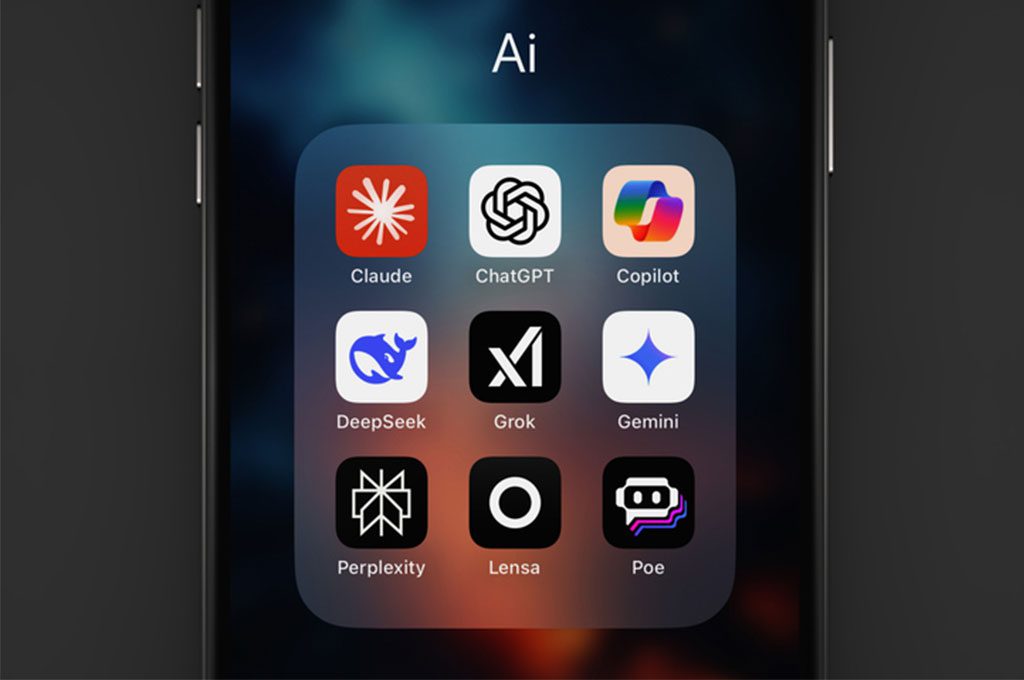The mobile world is changing fast. Suddenly, it’s not just about sleek designs, massive app libraries, or the fastest processor. Now, it’s about intelligence. Artificial intelligence. And that has turned the age-old Android vs. iOS battle into something much more personal—and exciting. The question isn’t which phone is “better” anymore. It’s: which platform actually makes your life smarter, easier, and a little more magical?

AI Is the New Playground
Remember when phones were all about speed and looks? That feels like a lifetime ago. Today, AI is the real game-changer. Tools like Google’s Gemini or Apple Intelligence aren’t just cool gadgets—they’re woven into the very fabric of your phone. They need access to the camera, microphone, and all your device sensors. They need to talk to your apps, understand your habits, even anticipate what you want next.
Put simply: an AI that’s just “tacked on” is like icing on a cake. Great to look at, but not the main course. The platform that truly integrates AI into everyday life? That’s the winner.
Android: A Universe of Possibilities
Android has something Apple can’t quite match: sheer reach. From the tiniest budget phone to the flagship powerhouse, Android devices are everywhere. That reach matters more than ever in the AI race. Google’s AI stack is showing up on more devices, in more languages, and across more regions than Apple’s.
At Google I/O 2025, Gemini wowed the audience with everything from live visual intelligence to cross-device AI that feels like magic. It’s fast. It’s clever. And it’s accessible.
But here’s the catch: Android’s flexibility is a double-edged sword. The experience isn’t always consistent. One phone might feel like a futuristic AI companion, another barely touches the surface. Fragmentation is real. But for sheer scale and experimentation? Android’s playground is unmatched.
iOS: Elegance Meets Smarts
Apple marches to its own beat. Closed system. Total control. Privacy baked in. If Android is a sprawling city, iOS is a perfectly designed boutique town where every detail feels intentional.
Apple’s AI shines in seamless integration. Your iPhone talks beautifully to your watch, your home, even your car. It feels polished. Thoughtful. Human. But not everyone gets the full picture—only newer devices carry the latest AI features, and updates aren’t as lightning-fast as on Android.
It’s a trade-off. A slower rollout, but a refined, privacy-focused experience that often feels more personal, more reliable.
Beyond Android and iOS: A Wider Battle
This isn’t just a two-player game anymore. Huawei’s HarmonyOS is flexing in China, embedding AI in a region-specific ecosystem. Samsung is blending Google’s AI with its own innovations, trying to carve a unique space in the market.
The OS wars are no longer just about phones. They’re about AI experiences. They’re about wearables, AR glasses, smart homes—everywhere intelligence touches your life.
Who’s Winning Right Now?
Here’s the honest truth: Android currently leads in momentum. Gemini-powered features are broader, faster, and more available across devices. Apple, though, holds a strong hand with tight integration, privacy, and elegance that few can match.
Android wins the sprint; Apple wins the marathon. And in this race, it’s not just speed that matters—it’s vision, execution, and how deeply AI reshapes your daily life.

What This Means for You
You might be thinking: “Cool, but how does this affect me?” Plenty:
-
- Device upgrades: Missing out on AI could make older phones feel… well, old.
-
- Feature access: Android gives more features sooner; iOS gives a smoother, more polished journey.
-
- Privacy trade-offs: Android is open and flexible; Apple protects your data fiercely.
-
- Ecosystem commitment: If your devices all talk to each other, AI can make that conversation smarter, faster, richer.
-
- Future gadgets: AR glasses, smart homes, wearables—your OS choice now can shape your tech experience for years to come.
It’s personal, but it’s also strategic.
Looking Ahead
The next few years will define the true champion:
-
- Hardware matters: Chips, sensors, NPUs—all must work hand-in-hand with the OS.
-
- On-device AI vs. cloud AI: Privacy and speed are the balancing act.
-
- Global reach: Making AI accessible to mid-range and low-end devices is crucial.
-
- Developers: Apps must harness AI meaningfully. Without them, even the smartest OS can fall flat.
-
- New device types: Phones are just the start. The OS that manages AI across multiple devices wins big.

Final Thoughts
The mobile OS wars have entered a thrilling new era. Intelligence is the battlefield, and every feature, update, and device matters. Right now, Android leads with sheer scale and rapid rollout. Apple counters with refinement, privacy, and premium integration.
For users, it’s exciting—and a little intimidating. Your phone is no longer just a tool. It’s your assistant, your planner, your daily companion. Choosing the right OS today could shape how AI touches your life tomorrow.
The AI race is on. And for the first time, it’s intensely personal.
For a look at the next-gen AI chip developments, check this